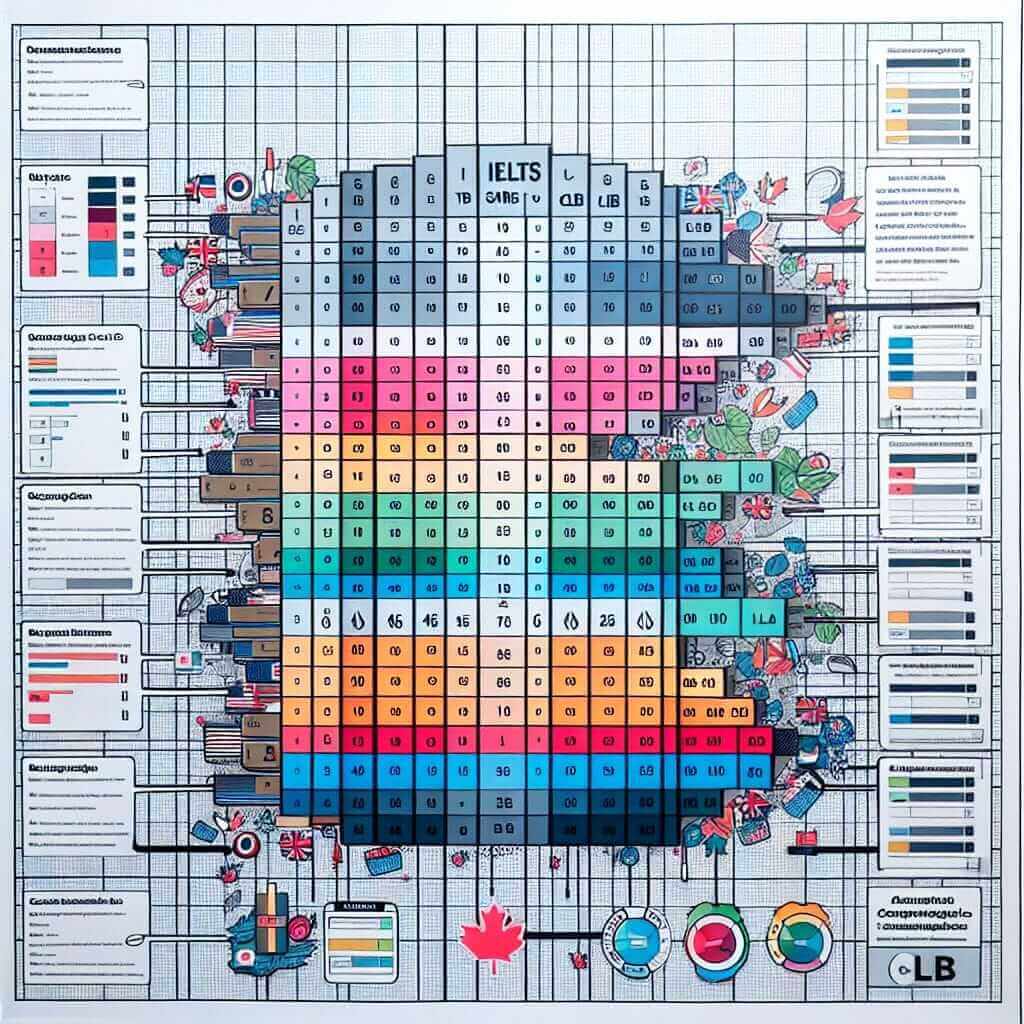For those aspiring to study, work, or immigrate to Canada, the International English Language Testing System (IELTS) plays a crucial role. However, navigating the intricacies of IELTS scoring can often feel overwhelming. A common question arises: What is the passing score in Canada IELTS? This article delves into this crucial aspect, providing clarity and guidance.
Understanding IELTS Scoring and the CLB
Unlike traditional exams with pass or fail grades, IELTS employs a band score system ranging from 1 (non-user) to 9 (expert). Each band corresponds to a specific level of English proficiency. In Canada, immigration authorities utilize the Canadian Language Benchmark (CLB) to assess language skills. The CLB comprises 12 levels, with higher levels indicating greater proficiency.
To successfully use your IELTS score for Canadian immigration, you need to understand how your IELTS band scores translate to CLB levels. Here’s a general overview:
| IELTS Band | CLB Level | Language Proficiency Description |
|---|---|---|
| 9 | 11-12 | Highly proficient speaker with near-native fluency |
| 8 | 10 | Very good user with occasional inaccuracies |
| 7 | 8-9 | Good user with operational command of the language |
| 6 | 7 | Competent user with effective communication skills |
| 5 | 6 | Modest user with partial command of the language |
| 4 | 4-5 | Limited user with difficulty understanding and being understood |

What IELTS Score Do You Need for Canada?
The required IELTS score for Canada varies depending on the specific immigration program or institution you are applying to.
Express Entry System
For instance, the Express Entry system, a popular pathway for skilled workers, uses the Comprehensive Ranking System (CRS) to rank candidates. Within the CRS, you can score a maximum of 136 points for your English/French skills. Here’s a breakdown of potential points based on CLB levels (remember, your IELTS scores translate to CLB levels):
- CLB 10 or 11 (IELTS 8 or higher in all sections): Maximum points for each language ability
- CLB 9 (IELTS 7 or higher in each section): Slightly fewer points than CLB 10 or 11
- CLB 7 or 8 (IELTS 6 or 7 in each section): Points awarded, but significantly lower than higher CLB levels
Other Programs and Institutions
Beyond Express Entry, other programs like the Provincial Nominee Program (PNP) or specific academic institutions may have different IELTS requirements. For example, a Master’s program might require an overall band score of 6.5, with no individual band below 6.0.
It’s essential to thoroughly research and identify the specific IELTS requirements outlined by the program or institution you are targeting.
Tips to Achieve Your Desired IELTS Score
- Start Early: Give yourself ample time to prepare, especially if you need to improve significantly.
- Understand the Test Format: Familiarize yourself with the structure and content of each IELTS section.
- Practice Regularly: Engage in consistent practice tests and exercises to build your skills and confidence.
- Seek Professional Guidance: Consider enrolling in an IELTS preparation course or working with a tutor for personalized feedback.
- Focus on All Skills: Develop your listening, reading, writing, and speaking abilities equally.
Conclusion
While there isn’t a single “passing score” for IELTS in Canada, understanding the relationship between IELTS band scores, CLB levels, and specific program requirements is paramount. Remember, achieving your desired IELTS score requires focused effort, effective preparation, and a clear understanding of your goals. With dedication and the right approach, you can succeed in your Canadian aspirations.